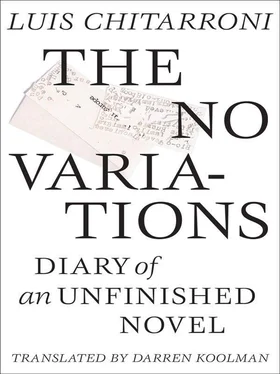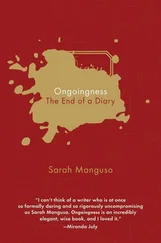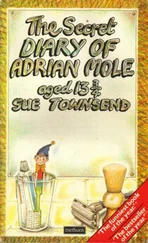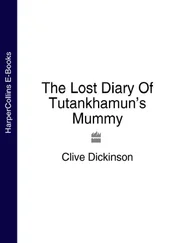— Mr. Rico, where in your country … let me say it right, where in your país —she mispronounced — are you from again?
Once again I said Valencia.
Then Bambi spent some moments talking to Falina as if she were addressing me. She seemed to ask questions about bullfighting or something, but I got the [distinct] impression she was interrogating me. So we spent these last awkward moments together — she talking to the cat, blowing her fingernails, me sitting nervously, gnawing mine — until (thank goodness) after putting on her raincoat, we finally left the house and climbed into Hope’s car.
During our journey in Hope’s Daimler, the two women engaged in one of those dull conversations that invariably (and perhaps purposely) bores the passive interlocutor to tears: so I sat through the journey, quietly, reflecting on the events of the day so far, wondering what else would transpire on “that adventure.”
— If you get bored in London, Hope can show you around, take you places further afield than the museums. She knows the city like the back of her hand. She could take you to Mornington Crescent, for example, where Sickert and Auerbach lived.
— It’s actually my sister, Honor, who’s the art aficionado — said Hope—. Honor among thieves . But she hasn’t the least scruple about admiring foreign artists. I mean, look at Sickert and Auerbach: they’re both German, for goodness sake.
Soon, we were in the outskirts of the city, or as far as the suburbs, where we finally saw some green — the color of insularity, of self-sufficiency, but not truly green or truly insular as that autonomous isle of Erin. What was it my Argentine friend used to say? The truth is never too green for a corruption . Hope drove at medium velocity over a hill and then accelerated. I guessed we were approaching our destination. Moments later, Bambi proved me correct by pointing to a cottage in the distance and saying that that’s where we were headed. I asked her if she’d been there before, and she responded by grabbing both shoulders and shuddering. Whether it was to her advantage or no, the woman was pure instinct.
The cottage, which was painted all white, was partially obscured by a tall fence, a hedgerow, and some trees. Hope parked her car. Bambi and I got out, passed under the arched gateway, crossed the pathway flanked by roses, and rang the bell of the front door. Two men and two dogs answered.
One of the men was short and fat, a ringer for Bob Hoskins; the other — well, he was the opposite. Both dogs seemed to have been following the first man’s diet. We approached and Bambi said, unhesitating:
— You must be Careclough, and you James.
— The reverse actually — said the Bob Hoskins lookalike, whom she mistook for Careclough. On entering, I saw it was a large country house with — I discovered after a quick peek — a sumptuous kitchen.
We spent quite a while with the horse. James refused to stop brushing him until his coat was lustrous. The future father of St. Mawr was a large but tired-looking stallion. It was very dark, almost black but not quite: the Spanish have a name for the color but it escapes me. Burnt or charred. I should probably ask my friend, Odriozola. There was nothing to predict how powerful the son would be, except there was a distinct advantage of his being born in Wales, apparently — in Cardiff specifically — even though his father was sired on a farm in Maesteg.
— To be honest — said James — it’s my first time looking after a horse of this caliber without the proper facilities. In fact, I used to breed horses in Clydesdale and Suffolk. — Then, as if he couldn’t perceive an arc connecting his proven past with an untested future, he added—: So Careclough will take on most of the responsibility.
Careclough had been born in the Orkney Islands — a small archipelago in north Scotland — not far from Balfour Castle.
— Just like Eric Linklater and Angus Swain — he suddenly vaunted.
— Tomorrow, Hope and James will come and collect him — said Bambi.
— His name’s Triste — said James.
— What a silly name, like that ugly city in northern Italy.
— No, “triste.” It’s Spanish for sad .
— Whatever — said Bambi — neither makes much sense.
— Triste. Sad. Blue . In Spanish it sounds nice: Don Quixote, el caballero de la triste figura . I don’t know how Smollett translated it.
— exaggerating, as always: The Chevalier of the sorrowful countenance —said Hope.
But no one was paying attention.
The place to which we then headed was (I later learned) formerly a pub called The Eagle & the Lad, which had been renamed Bird & Child (in fact, the neon sign over the entrance read Hinterland). When we arrived, the event had already begun. So, with her shoes in hand, Bambi scurried to her dressing room.
Cornelius Sacrapant was speaking, affecting (or seeming to affect) a foreign accent: a bald man, jovial — a mix of Elmer Gruñon and Pepe Grillo in appearance. He seemed to be telling jokes, switching between two voices, one of them addressing a person called Wallace. It was only when I saw the redheaded puppet propped on his knee, that I deduced he was a ventriloquist. Wallace seemed to twist everything his master said into a joke. His voice was certainly the strangest I’ve heard from a creature of his kind — at once surd and resonant, clipped and lyrical, with euphonious vowels broken by brusquely stressed consonants that reminded me a little of Careclough’s Scottish brogue. As for the ventriloquist, it turned out he was also a magician. Whenever he did a trick, he’d utter a catchphrase—“I can’t do it any slower”—before once again drawing a bird or rabbit from his hat, or running himself through with a rapier and turning in profile to show us the pointed end — covered in red paint — emerging from between his shoulder blades.
— One of the many superstitions of my land is to make sure and salute the priest twice each morning (so he doesn’t come blessing us in the afternoon); another is to only practice on our carpets in the small airfield that’s located just outside the city. For the route laid out for the flying of carpets out of Baghdad [Hagrabah. Spell ], as recorded in Burton’s translation of Alf Laila Wa-Laila , is dangerous and restricted. Now I admit Wallace and I have never needed magic carpets to fly. Especially Wallace.
Then he flung the puppet in the air. But he did it so crudely, the erstwhile invisible wires that allowed the puppet to walk alongside him on the stage, could clearly be seen by the audience (which, in the dark, looked a sparse congregation of pearl buttons and dentures), and resenting the spell being broken so abruptly, they all began to boo. Cornelius Sacrapant reacted as if he’d intended the effect — standing center stage, proud and erect, grinning smugly, waving his hat, and bowing to receive the occasional projectile on his bald pate. Once the puppet was back in his hands, he made it say goodbye with a sober wave. Then, not knowing what to do next, the magician’s proud veneer began to dissolve, as he remained rooted in the middle of the stage, raising a nervous hand to fix what remained of his hair, and stepping from side to side. As the booing continued, he set the puppet on the ground and manipulated its strings so it pedaled its feet, performing the action of climbing a falling ladder. No one was amused. Nevertheless, thirty seconds later — I counted the seconds because I was bored — Cornelius Sacrapant had gotten rid of his nerves and remained on the stage, suspended five feet above the heads of the audience, and although they continued jeering, he dismissed their jeers with one of those ambiguous gestures characteristic of Henrietta Bonham-Carter, and cheerily finished his routine.
Читать дальше
